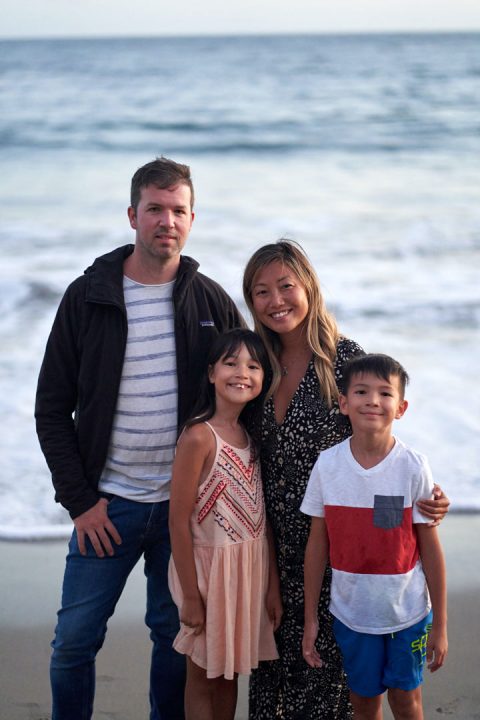The views expressed in our content reflect individual perspectives and do not represent the authoritative views of the Baha'i Faith.
Our families are the building blocks of society, and where we can start to build uncompromising unity — it’s where we have the opportunity to model and live out our faith in action. How do we continue to walk in love when we have strife and discord with our loved ones? We do this through the self-care of our spirits.
I am sure you have had this experience. A loved one says something to you that feels personal and you feel attacked. You move to defend words, and then you justify your actions. Your emotions are your brain’s split-second response to the situation, and they kick off changes in your body. However, this defensive posture, resulting from our unchecked ego, causes us to forget who we are as spiritual beings.
Baha’u’llah, the prophet and founder of the Baha’i Faith, wrote, “Wert thou to attain to but a dewdrop of the crystal waters of divine knowledge, thou wouldst readily realize that true life is not the life of the flesh but the life of the spirit…” The Baha’i Writings also tell us that “We must strive unceasingly and without rest to accomplish the development of the spiritual nature in man, and endeavor with tireless energy to advance humanity toward the nobility of its true and intended station.”
When we lose our spiritual grounding, we slip into a defensive mode, which has nothing to do with the soul and everything to do with the ego. We need to pause and take a deep breath. Through the teachings of the Manifestations of God, we can detach from the emotion of the moment and remember that beneath the surface of this behavior is a feeling, and beneath that feeling is a need. I need to look objectively at the interaction and ask, “What do I need right now? What does my loved one need?” Is my ego reacting, or am I in control of the situation objectively and spiritually from a place that has nothing to do with ego but everything to do with my higher self, my soul.

This critical step requires equanimity, which results from remembering who we are and who our loved ones are to God. Baha’u’llah reminded us of this when he wrote:
O SON OF MAN!
Veiled in My immemorial being and in the ancient eternity of My essence, I knew My love for thee; therefore I created thee, have engraved on thee Mine image and revealed to thee My beauty.
We have all been engraved with God’s image. We have an inherent nobility because we are a reflection of God’s love. However, when our ego gets in the way, and we become arrogant and prideful, we forget his reality. One way we can remedy our unchecked ego is to hold ourselves accountable or practice self-inquiry each day. Not only is this a best practice, but Baha’u’llah also called on all of us to do this when he wrote:
O SON OF BEING! Bring thyself to account each day ere thou art summoned to a reckoning; for death, unheralded, shall come upon thee and thou shalt be called to give account for thy deeds.
Before holding ourselves accountable, we have to ask God to clear the clutter from our thoughts so that we can ascertain the truth about ourselves and where we have fallen short.
Open my eyes that I may see wondrous things from Your law.
This is where we can make strides in reclaiming the love and compassion we feel for our loved ones. We must be humble and recognize that “I am only human, I am bound to misstep, yet I can avoid repeating the offense and do better.” The act of self-inquiry requires that we authentically acknowledge our human shortcomings, not in skill or aptitude, but where we have caused pain for another, usually resulting from our self-doubt, which is generally the result of being fearful.
A wise teacher once taught me that “FEAR” is False Evidence Appearing Real. It is an illusion, and if I am not aware of this, I will act or react and thereby short-change not only myself but also those around me. We learn from Baha’u’llah that the entire physical world is an illusion. He wrote:
O FLEETING SHADOW! Pass beyond the baser stages of doubt and rise to the exalted heights of certainty. Open the eye of truth, that thou mayest behold the veilless Beauty and exclaim: Hallowed be the Lord, the most excellent of all creators!
When it comes down to it, our reality is not “real,” yet our physical experience gives us a frame of reference that shapes our perception of the world. We have to ask ourselves, “How much of my experience, what I am feeling, and what I am thinking and observing from my loved ones is real or an illusion based on my own experience?”
Illusory thoughts can create fear — fear of lack of control, helplessness, abandonment, you name it. Abdu’l-Baha, the son of Baha’u’llah and his designated successor, reminded us that we must learn to change our frame of reference, to look at something from a different vantage point. It is incumbent upon us to see from our loved one’s perspective, empathize with them during a storm, and envelope them with God’s love and compassion. After all, as Abdu’l-Baha wrote:
The fleeting hours of man’s life on earth pass swiftly by and the little that still remaineth shall come to an end, but that which endureth and lasteth for evermore is the fruit that man reapeth from his servitude at the Divine Threshold.
In this context, the personal insights and greater self-awareness developed through self-inquiry are essential to living with purpose and meaning. Traits associated with keeping our ego in check allow us to come from a peaceful place of humility, empathy, and active listening and are vital to maintaining trust and partnership.
Through self-inquiry, we discern our triggers. In a heated moment, we have a choice: to lash out defensively or humble ourselves and move forward with nobility, love, and patience so that we can maintain the health, safety, security, and unity of our home.
The sacred writings of many faiths encourage this. In Romans 14:19 in the Bible, we’re told, “Let us therefore make every effort to do what leads to peace and to mutual edification.”
And in a talk in Paris in 1911, Abdu’l-Baha encouraged us when he said: “When a thought of war comes, oppose it by a stronger thought of peace. A thought of hatred must be destroyed by a more powerful thought of love.”
We must remember that God, in His ever forbearance and patience toward us, gently corrects us when we are not in alignment with His words by calling us to accountability to Him. When we meet each other in a spirit of humility, reverence, and true love for one another, God invites us, as Isaiah 1:18 said in the Bible, “Come now, let us reason together, says the LORD: though your sins are like scarlet, they shall be as white as snow; though they are red like crimson, they shall become like wool.”
The family is the nucleus of civilization and the basic social unit of society. We know this not only through the teachings of the Manifestations of God but research also clearly shows that the institution of the family is the first form of community. Abdu’l-Baha gave us insight into how we can create a home that nurtures the family:
My home is the home of peace. My home is the home of joy and delight. My home is the home of laughter and exultation. Whosoever enters through the portals of this home, must go out with gladsome heart. This is the home of light; whosoever enters here must become illumined. This is the home of knowledge: the one who enters it must receive knowledge. This is the home of love: those who come in must learn the lessons of love; thus, may they know how to love each other.
Our families are the gateway to building an ever-advancing civilization. Let the joy and tranquillity in one’s home be where faith can always be felt — and where the changes and chances of this life leave your faith unshaken.

















Comments
Sign in or create an account
Continue with Googleor